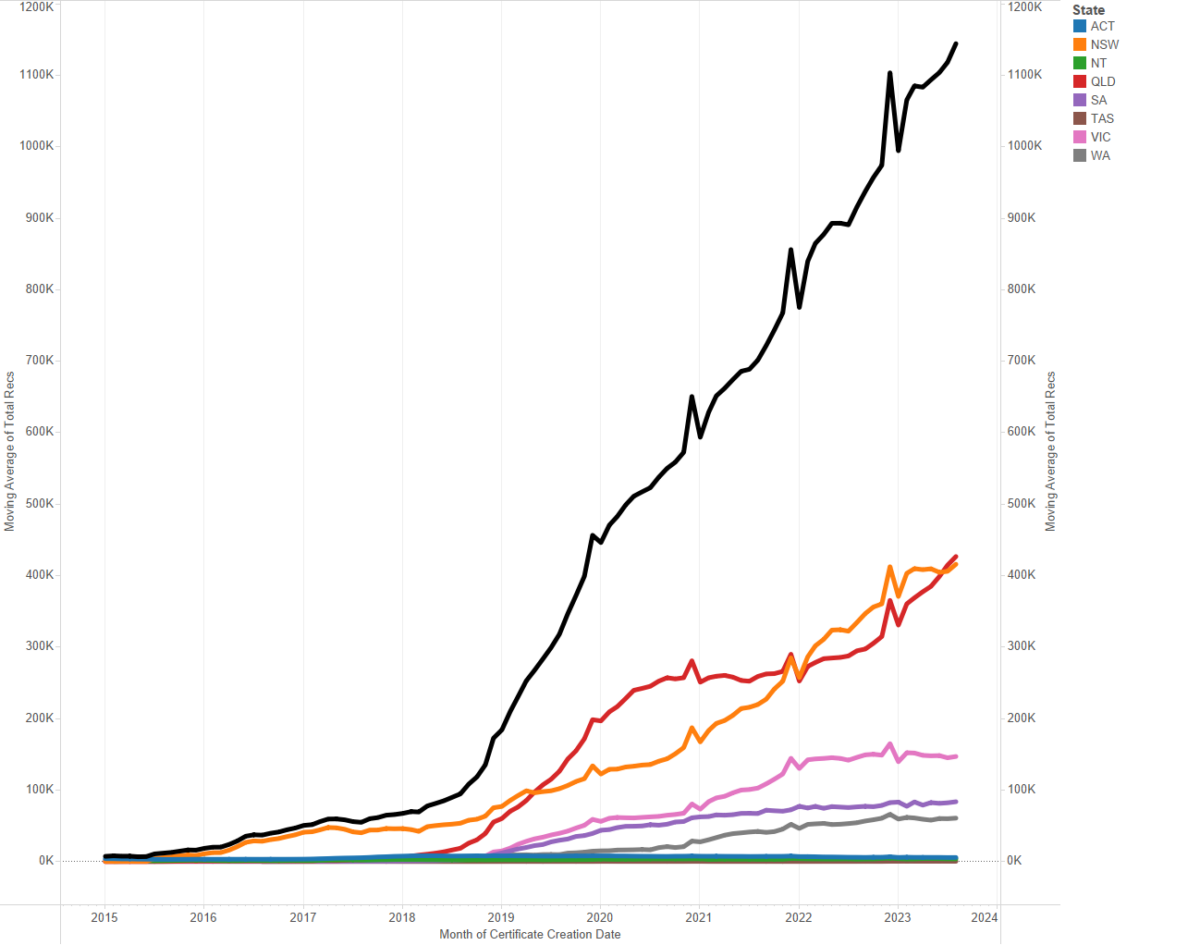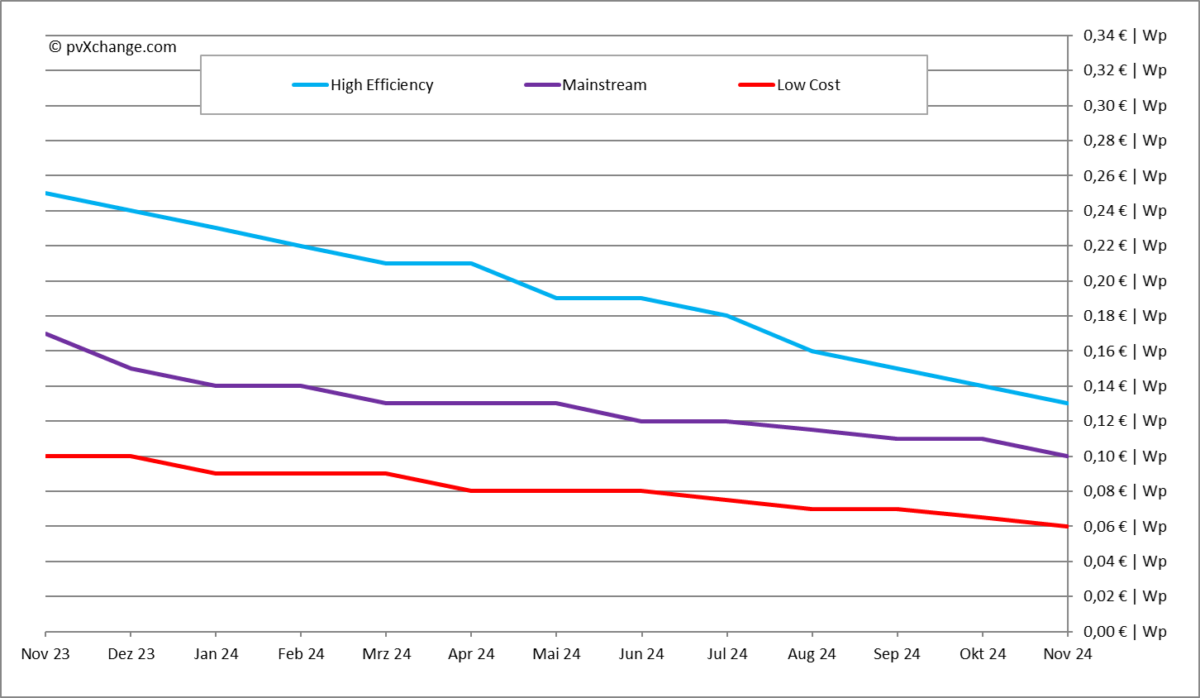Recent analysis from solar and storage analyst Sunwiz shows that Australia’s large-scale renewable segment is languishing. Looking at the Sunwiz graphs breaking down large-scale certificates (LGCs) registered in each state, the graphs reveal the segment is utterly flat in most regions.
“Look at how much flatness there is. It’s only really Queensland that is going up right now,” Sunwiz’s Warwick Johnston told pv magazine Australia.
Over the last three years, both Queensland and New South Wales (NSW) have pulled way in front of the other states. Nonetheless, even New South Wales has had an incredibly flat 2023.
These figures encompass both utility-scale renewable generation projects as well as larger commercial and industrial installations, Johnston noted.
“There will inevitably be more businesses putting solar on in the coming six months, and so the pressure that has built up will get released in that [C&I] segment,” he said. “But such a stall that has occurred at the level of grid-scale solar, we don’t see it being resolved – not in any fast, quick and soon way. The energy transition in Australia is at risk of losing its social license if we continue to go so slowly because people will face high electricity prices if coal isn’t replaced with renewables. There’s a lot of barriers there that absolutely have to be addressed so we can get cheap, bulk energy. But we need that cheap bulk energy now and in the coming two, three years.”
He expressed concern about the reduction of subsidies for small-scale projects while waiting for solutions in the large-scale sector. He also noted the potential risks associated with this approach.
He is referring to the gradual winding back of Australia’s small-scale certificate scheme, which will end completely in 2030. He said that one way to get things flowing better would be to make commercial solar up to 1 MW eligible for STCs. In his eyes, “not enough” is happening in the regulatory space to start solving the issues of grid scale solar, including approval delays, grid connection and transmission.
This content is protected by copyright and may not be reused. If you want to cooperate with us and would like to reuse some of our content, please contact: editors@pv-magazine.com.




By submitting this form you agree to pv magazine using your data for the purposes of publishing your comment.
Your personal data will only be disclosed or otherwise transmitted to third parties for the purposes of spam filtering or if this is necessary for technical maintenance of the website. Any other transfer to third parties will not take place unless this is justified on the basis of applicable data protection regulations or if pv magazine is legally obliged to do so.
You may revoke this consent at any time with effect for the future, in which case your personal data will be deleted immediately. Otherwise, your data will be deleted if pv magazine has processed your request or the purpose of data storage is fulfilled.
Further information on data privacy can be found in our Data Protection Policy.